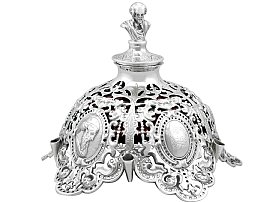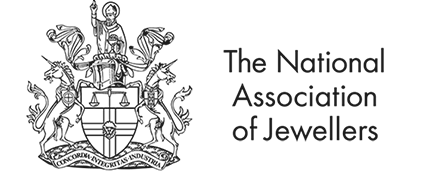Joseph Angell II
Joseph Angell I (Sr) obtained his freedom from his apprenticeship to Henry Nutting in 1804. Joseph's brother John Angell apprenticed to William Elliot in 1799 and had freedom in 1807. Their brother Abraham apprenticed to Joseph, however never obtained his freedom.
Joseph Angell I entered his first mark in 1811 as a plate worker, operating at 55 Compton Street, Clerkenwell. On the 31st January 1831 he entered a joint mark with his brother John Angell.
Around 1837, Joseph Angell II (Jr) joined the partnership, with the business operating under the name Angell, Son & Angell. Shortly after, in 1840 John left the partnership and the business continued as Joseph Angell & Son; this new mark was entered on 6th July 1840, and they moved in 1842 to 25 Panton Street, Haymarket.
Upon the retirement of his father, Joseph Angell I in 1848, Joseph Angell II continued the business under his own name, opening a retail premises at 10 Strand, Charing Cross in 1849. From here Joseph Angell II progressed his skills and enhanced the family name's already highly established reputation. Angell participated at the 1851 Great Exhibition and was awarded a Prize Medal for his enamelled pieces, in in following years he obtained further metals.
In 1867 Joseph Angell Jr. entered in partnership with John Browne, trading as Angell & Browne; this partnership dissolved in 1876 and the business continued as Angell & Co.
Upon the dissolution of Angell, Son & Angell in 1840 John Angell's sons, John Charles Angell and George Angell entered their first mark, trading closely at 51 Compton Street, Clerkenwell. Upon the death of his brother in 1850, George continued their firm as George Angell & Co, operating from 1852-1860, and also as George Angell manufacturing silversmith. George Angell also participated at the 1851 Great Exhibition with a large vase and other silverware pieces. The death of George Angell in 1884 saw the firm being taken over by George Frederick Courthope. He entered his own mark in 1884, however, continued to trade under the style of George Angell till 1889.
The Angell family gradually turned to retail business, assuming the role of one of the most important and largest silversmithing and jewellery manufacturers/retailers in London, within the mid-19th century.



